127 CD / Rachmaninoff · Tschaikowsky
Abegg Trio Series Vol. XXIII
Rachmaninoff · Tschaikowsky
Piano Trios
Abegg Trio
EAN/barcode: 4009850012702
Description
Tchaikovsky’s Piano Trio is really something! How can the listener to be kept agog for a full 46 minutes, then feel the return of the initial theme at the end of the last movement for what it is: the end of a grandiose arch spanning the whole cosmos? Tempo proportions, phrasing and many other things are important here. The Abegg Trio went to the trouble of referring to the original manuscript and getting scientific help to check these proportions and to perform them faithfully just as Tchaikovsky intended them. Those who know the work are in for a surprise...
9 reviews for 127 CD / Rachmaninoff · Tschaikowsky
You must be logged in to post a review.
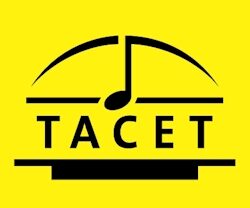
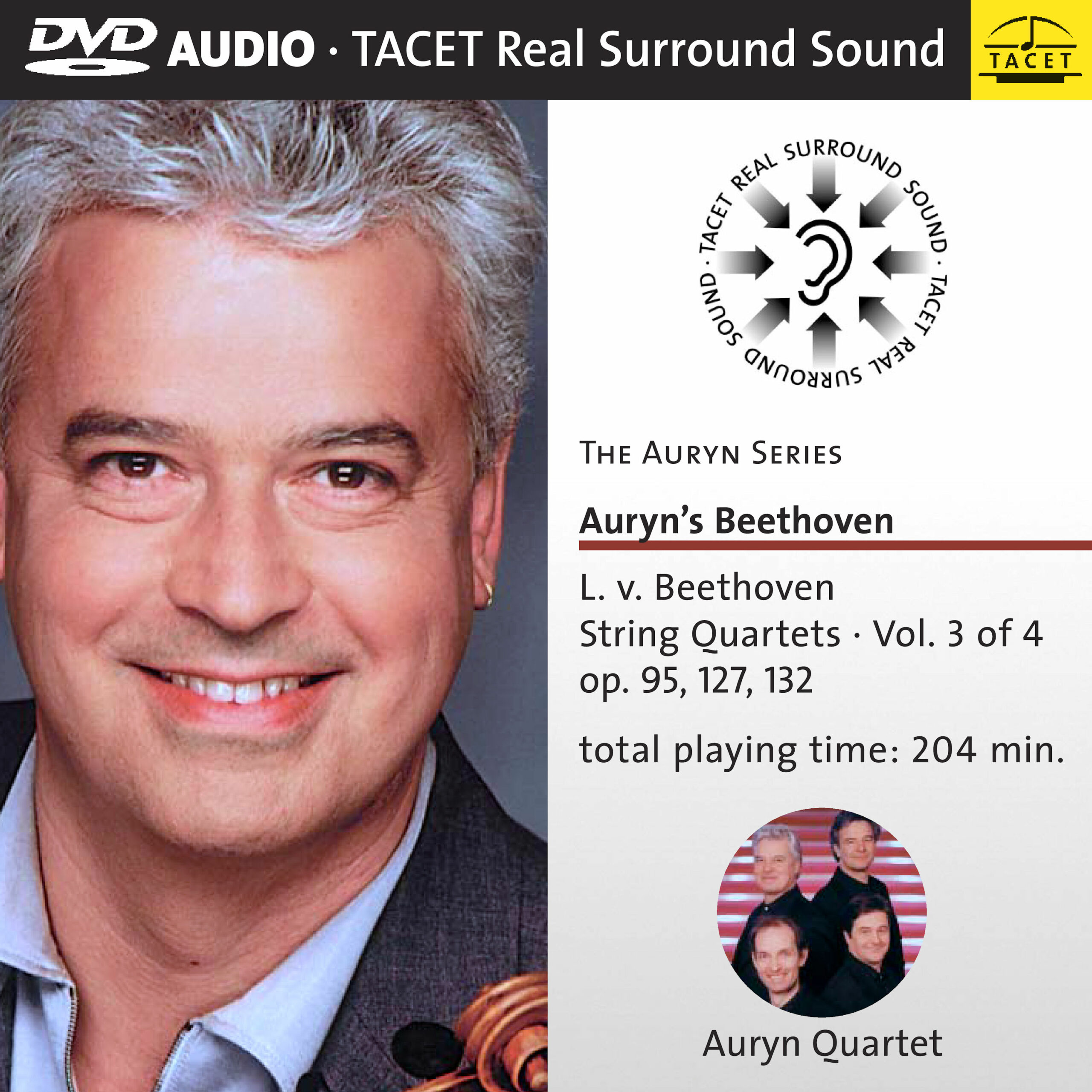
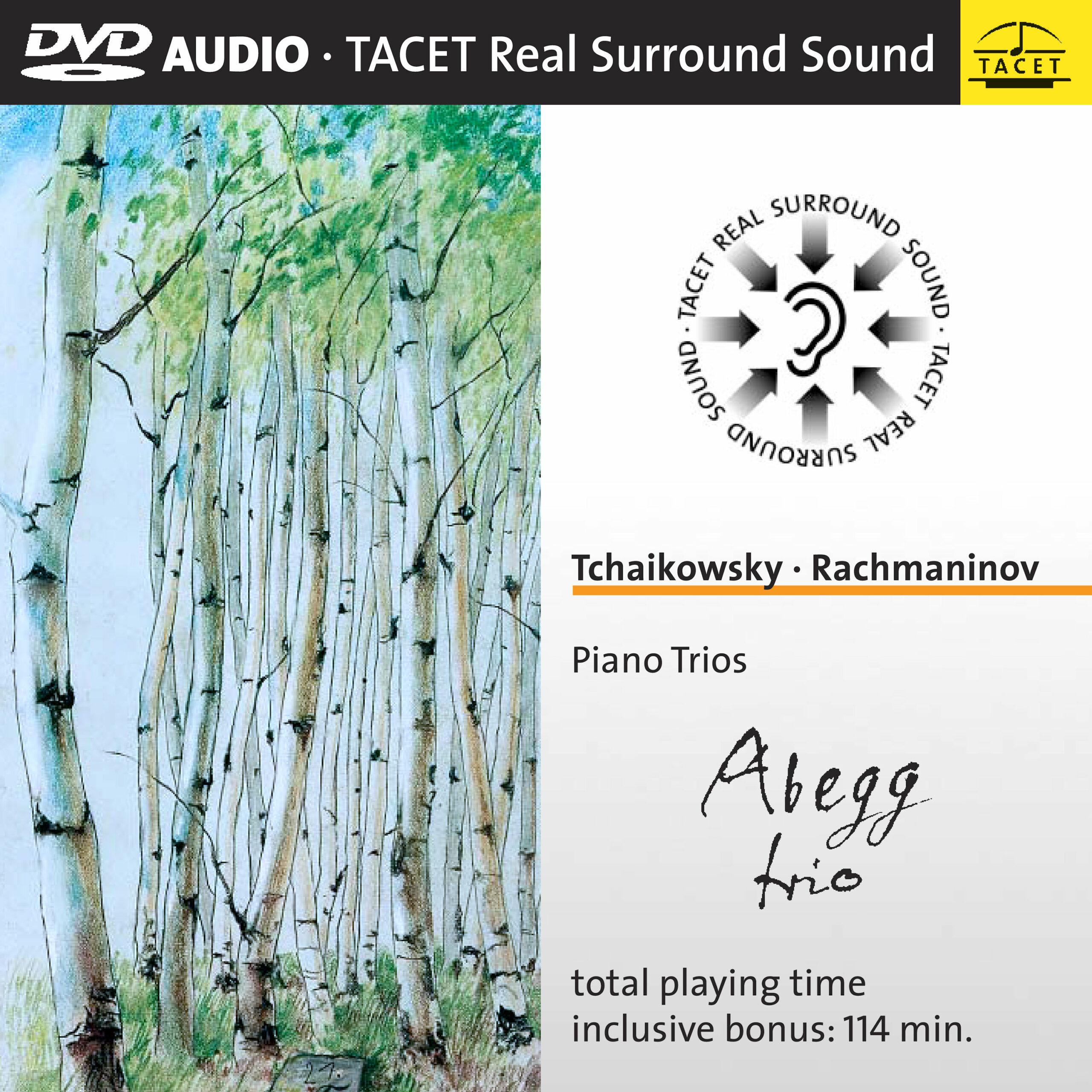
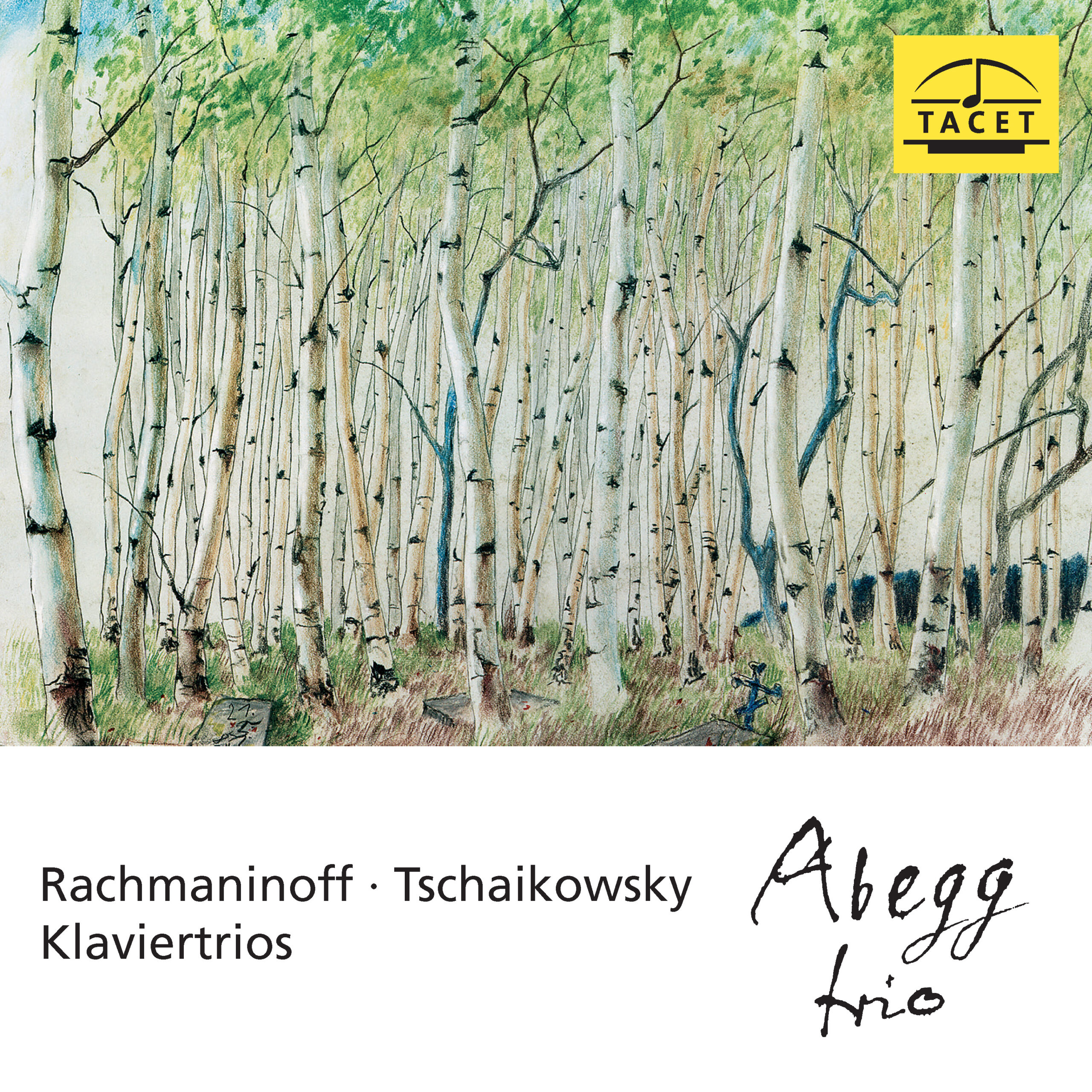
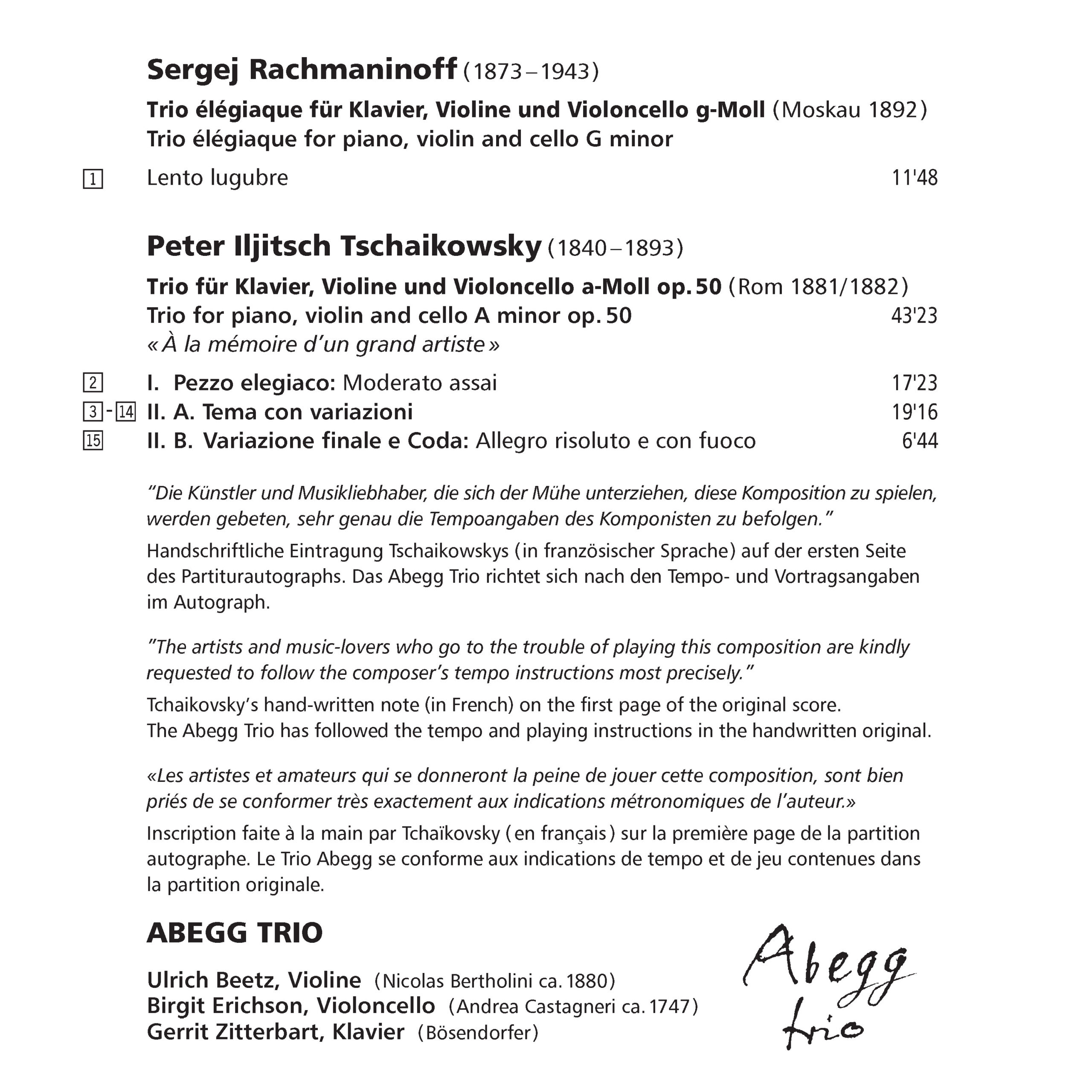
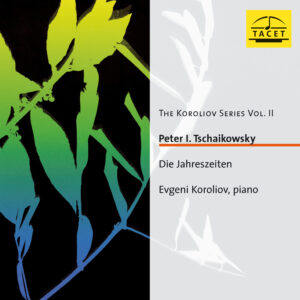
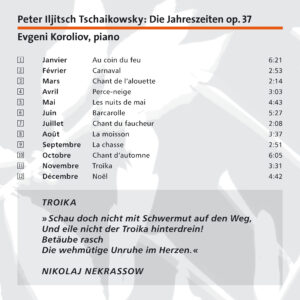
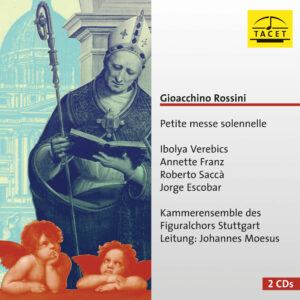
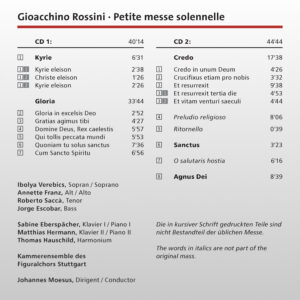
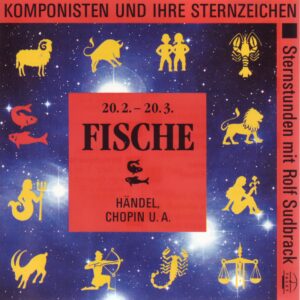
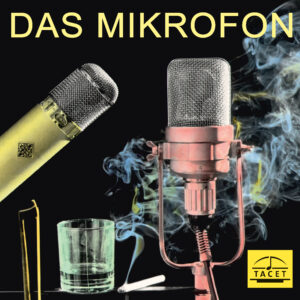
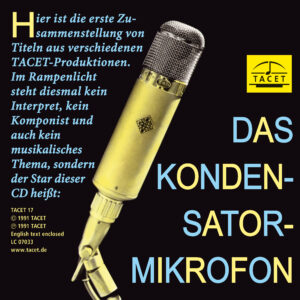
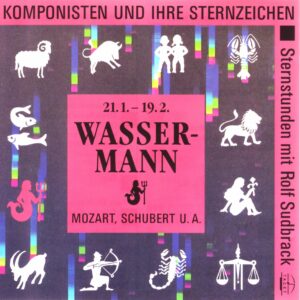
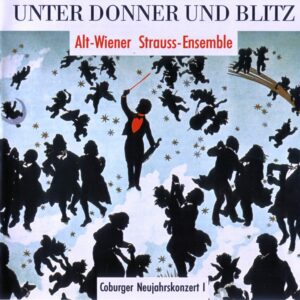
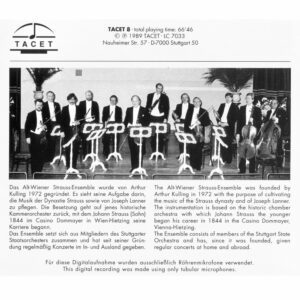
AudiophileQ.com –
The Abegg Trio went to the trouble of referring to the original manuscript and getting scientific help to check these proportions and to perform them faithfully just as Tchaikovsky intended them. Those who know the work are in for a surprise.
Pizzicato –
That excellent recordings do not always have to be made by stars is demonstrated by the Rachmaninoff–Tchaikovsky CD with the Abegg Trio. Here, the music is performed in an extremely professional, solid, and stylistically assured manner. The three musicians handle Tchaikovsky’s melodic richness better than the more complex structure of the Rachmaninoff work, where a certain bite is missing. Instead, balance and tonal beauty, well-measured emotion, and restrained brilliance are the positive aspects of this release, which can be recommended without any reservations.
Steff
AZ –
Rachmaninoff’s Trio élégiaque can safely be assigned to the shallow salon, whereas Tchaikovsky’s Piano Trio op. 50 would be profoundly misjudged by that. The Abegg Trio performs this large-scale chamber work with classical discipline, well balanced between formal clarity and broad Romantic sweep. A convincing plea.
R.S.
Stereoplay –
Ulrich Beetz, Birgit Erichson, and Gerrit Zitterbart studied Tchaikovsky’s autograph from 1882 as well as the new edition of 1892 before they approached their recording of the famous trio. This had consequences, as a comparison with other recordings of the work shows, including highly esteemed ones such as Rubinstein/Heifetz/Piatigorsky (1950) and Argerich/Kremer/Maisky (1999). The Abeggs fulfill Tchaikovsky’s explicit demand for strict adherence to his metronome markings; in addition, they follow the phrasing and articulation instructions of the composer. The only concession to convention: the overlong final variation is shortened up to the reprise, which is no flaw. Whether Tchaikovsky’s tempo marking for the fugue (Var. 8) is fortunate remains debatable, as the piece in this form sounds wooden and extraterritorial. The performances are characterized by much drive and color. That the piano often dominates strongly is in keeping with the composition: a tribute to the great pianist Nikolai Rubinstein. Otherwise, the Abeggs do not lack in differentiation.
Alfred Beaujean
NDR Kultur, Neues vom Schallplattenmarkt –
Founded in 1976, the Abegg Trio has for many years been one of the leading chamber music ensembles in Europe. And not only because of its interpretative qualities, but also due to its scholarly approach to the score and its intelligent programming. These virtues are also evident on the ensemble’s latest CD featuring works by Russian composers. For example, the musicians precede the main work of the recording, Tchaikovsky’s Piano Trio op. 50, with an appropriate overture: the 1892 Trio élégiaque by a then 19-year-old student and admirer of Tchaikovsky named Sergei Rachmaninoff…
At the center of the CD, however, is Tchaikovsky’s own Piano Trio op. 50 in A minor. The piece was composed in 1881 in memory of the deceased friend and patron Nikolai Rubinstein and is generally regarded as his most advanced chamber music work. It is structured in two parts: an extended sonata movement marked by melancholic moods, and a series of 12 variations, which include, among others, a waltz, a mazurka, and a skillfully constructed fugue. From a sonic perspective, the trio is very lush: repeatedly, Tchaikovsky exceeds the bounds of chamber music and gives the work an orchestral sweep. Only through very careful interpretation do the members of the Abegg Trio succeed in keeping the whole transparent. Despite all philological precision, they fortunately manage to preserve the large-scale arc and avoid any risk of fatigue. As the critic Eduard Hanslick wrote so beautifully about the work 100 years ago: “It belongs to the class of suicides among compositions, those which, through merciless length, kill themselves.” The Abegg Trio has now brought it back to life.
Marcus Stäbler
Bayern 4 Klassik Radio –
The blossoming at the beginning, the fading at the end – this could characterize Tchaikovsky’s A minor Trio, described musically-analytically, narratively. As an autobiography, so to speak, of a painfully distorted, melancholically consuming life full of depressive episodes. Generations have performed this music in that way. Since it can also be done differently – following thoughtful communication with the music, following historically informed performance practices that have also cleansed the listening habits – Tchaikovsky can sound unsentimental, rigorous, clear, melodically blissful, and yet formally perfected in the truest sense of the word. And that was exactly what mattered to the composer: his struggle for form was always in opposition to the melodiousness, of which he possessed an abundance. The Abegg Trio brings Tchaikovsky’s chamber music into the territories of clarity. Tempo relations play a role here, phrasing arcs, a clarified emotional state.
The Abegg members perform from the autograph, refraining from the supposedly “improved” aspects of one or another printed edition. They have undertaken the effort to observe Tchaikovsky’s bowing, his indications for articulation and structure. And: this openness in dealing with any music that becomes important to them is what distinguishes the Abegg Trio, above others, alongside others. And they have done so for more than a quarter of a century, without the slightest sign of routine or wear. The label TACET once again provides proof here that wherever the Abegg Trio takes up their instruments, fulminant expressive richness and technical perfection come into play, and that dusty scores shine anew.
Wolf Loeckle
Klassik heute –
It always seems a little risky when ensembles pride themselves on fulfilling the composer’s performance markings, including tempo indications, to the letter. When the booklet then also states that this Tchaikovsky Trio is the first recording of the original version, the danger is near that philological ambition may too easily displace musical logic.
Not so here. The Abegg Trio, playing in the same formation since its founding in 1976, integrates Tchaikovsky’s performance instructions so confidently into its fluid and harmonious ensemble that it seems as if freedom, rather than philological rigor, is the supreme principle. This also speaks for the quality of a still underestimated composition, in which Romantic pathos and structural complexity are symbiotically intertwined.
At the center of the interpretative approach is the vivid presentation of the large form. The symphonic dimensions – the work lasts almost 45 minutes – are given enough space to unfold. The driving force of this soon-to-be landmark interpretation is the piano playing of Gerrit Zitterbart. His sensitive touch, combined with the marking of form-shaping substance, forms the basis for the very singing strings of Ulrich Beetz (violin) and Birgit Erichson (cello). Tchaikovsky’s Trio is complemented by Sergei Rachmaninoff’s Trio, composed in 1982 – strangely, placed right at the beginning of this CD. This trio, whose emotional character strongly recalls Tchaikovsky’s work and is dedicated to him, anticipates at the very start of the recording much of what later unfolds much more happily. The sound quality of this CD is also successful. The somewhat muted piano is spatially positioned clearly behind the strings, whose unspectacular but fine tone was also beautifully captured.
Robert Spoula
Fono Forum –
Tchaikovsky’s roughly 45-minute piano trio, in its extraordinary two-movement structure, is far more than a requiem for Nikolai Rubinstein. In the monumental variation movement, which closes with the melancholically shaded opening of the first movement, Tchaikovsky develops from the folksong-like theme a dense panorama of late-Romantic emotional richness, thereby documenting both his own mastery and the profound experiential capacity of his time. The Abegg Trio’s strict, concentrated interpretation, emphasizing poetic seriousness over playful surface, makes Tchaikovsky’s work comprehensible as expressive music of its epoch.
F.S.
Rondo. Das Klassik & Jazz Magazin –
One hardly knows where to begin with the praise: from the irresistibly elegiac interpretation by a superb Abegg Trio, to the refined, very transparent recording by TACET, to the highly informative booklet, this new release convinces in every respect. The early elegiac Trio by Rachmaninoff from 1892, still from his student days, is set against the late Piano Trio by Tchaikovsky, composed at the beginning of the 1880s. For the recording of the Tchaikovsky Trio, the ensemble consulted the original sources, since the printed editions contain differing indications for articulation and phrasing, and the sources regarding cuts are likewise inconsistent. The Abegg Trio largely adheres to the original version of the score autograph, following Tchaikovsky’s instructions which they prefer to the printed editions. It is also impressive how the trio fulfills Tchaikovsky’s explicit request to “adhere exactly to my metronome markings.” And it is highly astonishing how this piece suddenly sounds. Sweet and bitter facets are cleverly brought out, the palette of colors is enormous, and everything seems cast into a melancholy that never repels or intrudes, but captivates to the highest degree. The variation movement develops particularly beautifully, like a dreamlike creation.
It proves advantageous that the Abegg Trio has now been playing in the same formation for 27 years (!). A balanced, yet never boring ensemble, whose members can rely on one another blindly. Magnificent! There is really little more to say about such recordings.
Karin Dietrich